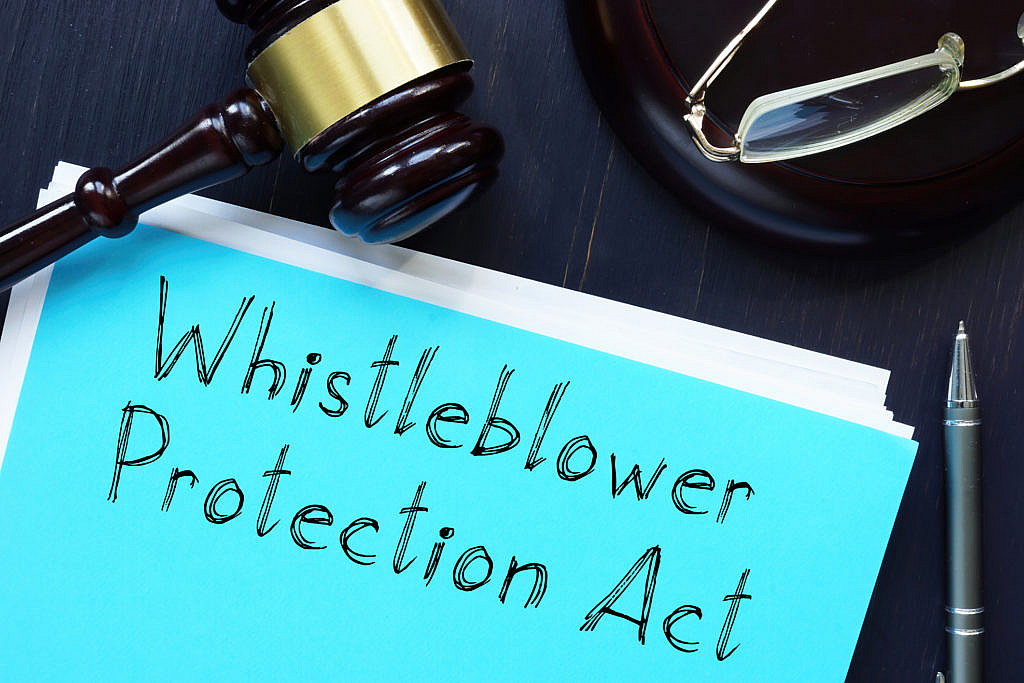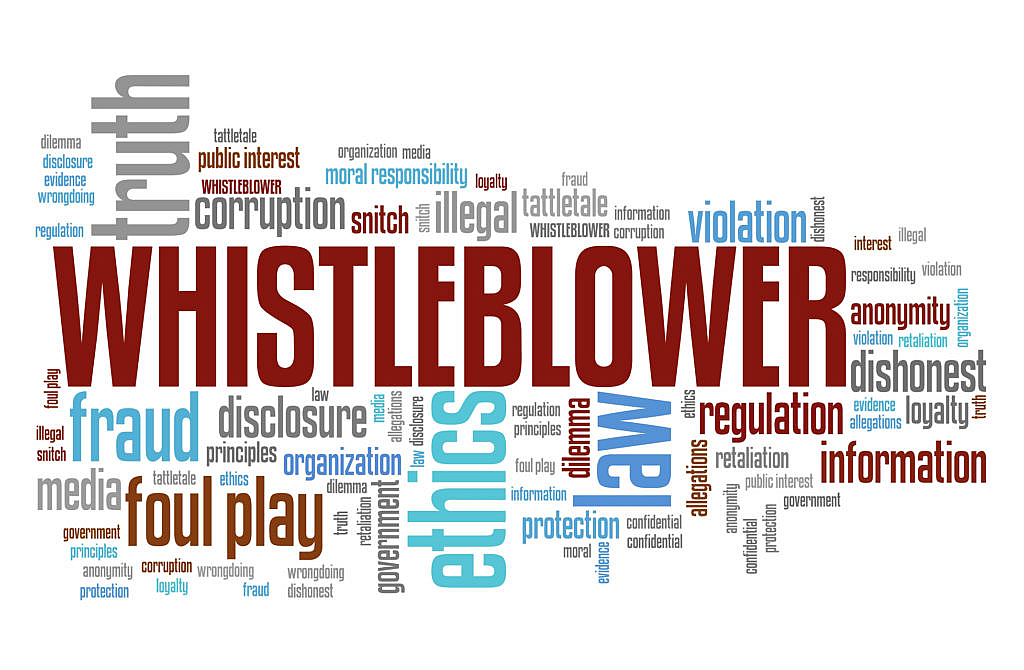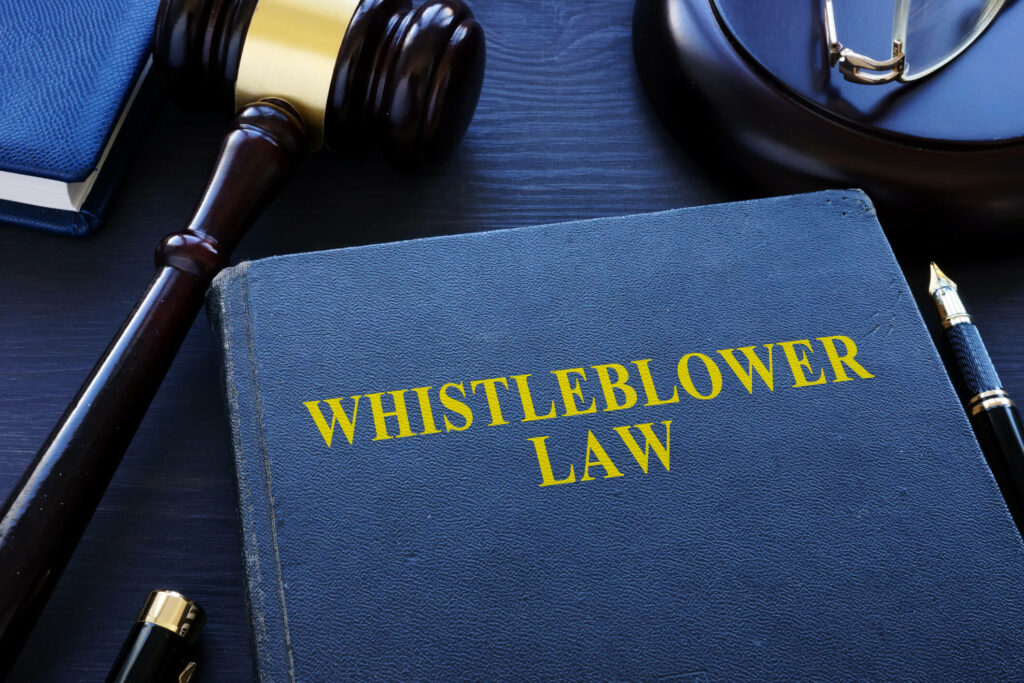OSHA Whistleblower Protection

OSHA whistleblower protection is for someone who warns officials of an individual or company that is engaging in unethical or immoral conduct. Employees are protected from termination by employers under OSHA’s whistleblower rules, such as firing, discipline, abuse, and demotion. OSHA’s Whistleblower Protection Program enforces the rules of more than 20 federal statutes that shield workers from retaliation for voicing or disclosing complaints about risks or abuses, among other factors of various workplace protection and health, industrial motor carrier, consumer goods, environmental, financial policy, food safety, health care reform, motor vehicle safety, nuclear, pipeline, public transportation agency, highway, marine, and securities laws Employees who suspect they have been subjected to harassment in violation of one of these laws can file a formal complaint. After completing your OSHA 10-Hour and OSHA 30-Hour training, you will be able to acknowledge the OSHA whistleblower protection laws mentioned below:
- Clean Air Act (CAA), Safety Drinking Water Act (SDWA), Federal Water Pollution Control Act (FWPCA), Toxic Substances Control Act (TSCA), Toxic Solid Waste Disposal Act (SWDA), and Comprehensive Environmental Response, Compensation, and Liability Act (CERCLA) for complaints filed by protected employees about environmental laws and regulations.
- Wendell H. Ford Aviation Investment and Reform Act for the 21st Century (AIR21) for complaints filed by protected employees about federal air carrier safety laws.
- Sarbanes-Oxley Act (SOX) for complaints filed by protected employees about federal mail, wire, bank, or securities fraud as well as any federal law provisions violations of shareholder fraud.
- Pipeline Safety Improvement Act (PSIA) for complaints filed by protected employees about pipeline safety.
- Federal Rail Safety Act (FRSA) for complaints filed by protected employees about railroad security, safety, gross fraud, waste, or abuse of federal grants.
- National Transit Systems Security Act (NTSSA) for complaints filed by protected employees about security, fraud, waste, or abuse of public transportation, including grant abuse or unsafe conditions.
- Consumer Product Safety Improvement Act (CPSIA) for complaints filed by protected employees about Consumer Product Safety Commission requirements.
- Occupational Safety & Health Act (OSH Act) for complaints filed by protected employees about workplace safety and health hazards.
- Surface Transportation Assistance Act (STAA) for complaints filed by protected employees about commercial motor vehicle safety.
- Asbestos Hazard Emergency Response Act (AHERA) for complaints filed by protected employees about environmental violations for asbestos in elementary or secondary schools.
- International Safety Container Act (ISCA) for complaints filed by protected employees about unsafe cargo containers.
- Energy Reorganization Act of 1974 (ERA) for complaints filed by protected employees about nuclear safety laws or regulations.

How OSHA Whistleblower Protection Plan works
The Occupational Safety and Health Administration (OSHA) is the primary federal regulation that workers must follow in order to report unsafe workplace environments caused by the coronavirus pandemic. If their employers force them to work in hazardous situations that endanger their lives, OSHA law guarantees their freedom to refuse. In the aftermath of the coronavirus pandemic, requiring workers to serve in areas where they are at risk of contracting COVID-19 should be prohibited.
However, with the vast majority of the American workforce, OSHA’s legal safeguards are meaningless. Unlike all other current whistleblower rules, OSHA lacks a “private right to action,” which ensures that workers who face termination for reporting poor workplace practices or refusing to do life-threatening tasks cannot file their own lawsuits in court. Instead, OSHA’s 11(c) allows employee whistleblowers to file a lawsuit with the United States Department of Labor (DOL) claiming retribution. Once filed, the whistleblower’s allegation is entirely in the possession of federal employees, all of whom report to the Secretary of Labor or the president. Employees cannot sue on their own behalf under OSHA rules. Instead, they can only ask OSHA to help them. If OSHA fails to intervene, the employee’s right to be free of punishment cannot be upheld.

How to Report Complain to OSHA
Employees must file a harassment report with OSHA within 30 days of any adverse action. If they do not reach an exceedingly tight deadline, their lawsuit is immediately dismissed, regardless of how severe the damage is. This 30-day statute of limitation is one of the shortest of any federal employment law. Fill out a Whistleblower Complaint Form or contact OSHA as soon as you see any retaliation/violation. Within 30 days of the suspected retaliation, an employee must file a report with OSHA. Complaints can be sent via facsimile, electronic correspondence, hand delivery during business hours, US mail, or commercial carrier. The communication’s date is marked as the date filed.
When OSHA receives a complaint, it will first check it to see if some specific conditions, such as if the complaint was submitted on time, have been met. If it is the case, the lawsuit will be reviewed to see if the company retaliated against the employee for engaging in conduct covered by one of OSHA’s whistleblower rules. OSHA may also try to help the boss and worker find an agreement on the situation. Section 11(c) of the OSH Act protects private-sector workers in the United States and its dependencies, as well as employees of the United States Postal Service (USPS), who face punishment for engaging in workplace safety or health activities. Furthermore, private-sector employers are covered by legislation in states that have extensive occupational safety and health systems that have been authorized by Federal OSHA.

Investigational Findings If OSHA decides that retribution in infringement of the OSH Act, Toxic Hazard Emergency Response Act, or International Safe Container Act has occurred, the Secretary of Labor can seek redress in federal district court. Whether OSHA decides that there was no retaliation, the case would be dismissed. Whether the facts confirm an employee’s allegation of harassment, OSHA will issue an injunction ordering the employer, as necessary, to return the employee to work, reimburse missed compensation, and offer any practicable remedies under the existing whistleblower rules. If the facts do not justify the employee’s complaint, the complaint would be dismissed by OSHA. After OSHA issues a ruling, the employer and/or the employee can seek a full hearing before a Department of Labor administrative law judge. Therefore, it is recommended by the Federal OSHA for workers to become OSHA-certified to retaliate against any OSHA violation happening in their workplace facility.






